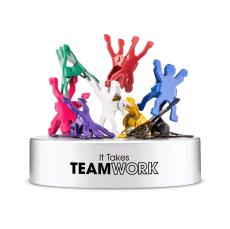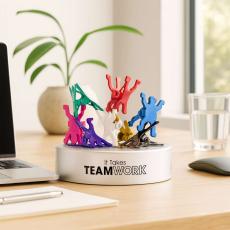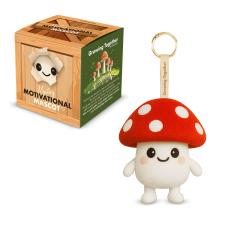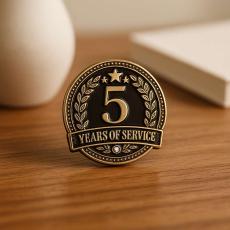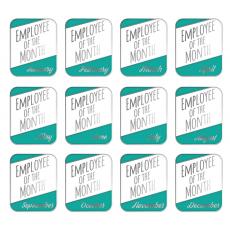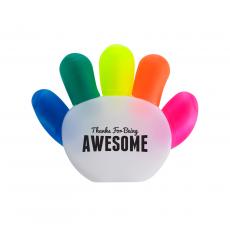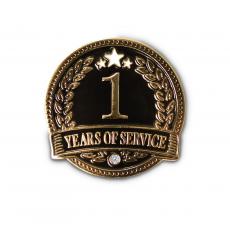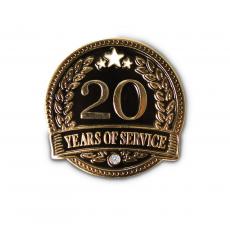Fun Motivational Gifts

Motivated Employees Equal Productive Employees
Companies that want to grow and boost their operational efficiency continually may, at some point, hit something of a wall. In the continual pursuit of growth, keep those in mind as well. For instance, there's no reason companies shouldn't have a system that automatically reminds higher-ups about every employee's birthday or an employee's years of service with the company. That provides actionable information that companies can use to provide gifts that likewise help employees feel as though they're valuable; in fact, because most people aren't going to remember their start dates on a long-term basis, those kinds of employee anniversary presents could be a delightful surprise that makes them more motivated to help push their companies forward.
Similarly, quick public recognition of good work an employee has done will help them feel more engaged, there can sometimes be hiccups - including those that come because people may not always be as motivated as they could be. But it stands to reason that when employees are motivated to show up and do the best possible job every day, they will help themselves and their companies succeed as time goes on. That level of productivity isn't always easy to achieve, but it's something companies will want to bottle. As such, the question for many business owners, executives, and other decision-makers should often be, "How do I keep my employees motivated regularly?"
There are many schools of thought on how companies can keep employees engaged in the long term. Still, there may be two foundational ideas that will help ensure the kind of motivation and buy-in companies often seek is just a part of corporate culture. The more important of these two pillars is ensuring workers have equity in any success a company has. When incentives - whatever they may be - are put in place for meeting sales goals, getting projects completed on time or budget, and so on, people are generally going to find real value from putting in the work necessary to meet company needs continually.
However, while companies can move to institute these plans now, they must keep in mind the second pillar: the need to make sure any hire they make understands the culture around the office and can be honest about finding a good fit. Any hire that doesn't work out can set companies back in meeting their goals and negatively affect productivity for entire teams. Overall, it may be wise for companies to get a little more proactive about listening to and acting upon employee feedback so that any issues that arise - especially as companies focus on growth - can be dealt with expediently instead of being left to linger.
What makes for strong employee morale at work?
With that in mind, perhaps the most important aspect of maintaining a motivated workforce is communication. When employers and employees can maintain open lines of communication and feel they're all on the same page, they are far more likely to feel like they're pulling in the same direction. When everyone knows what's at stake, what's expected of them, and what resources might be available to help them meet or exceed their goals, there's always likely to be more motivation for employees to continually show up and do the best job possible while still maintaining a strong work-life balance. Ensuring workers don't burn themselves out when chasing deadlines and trying to meet internal goals is likewise very important to making sure employees are content in their jobs.
When to Start Engaging Employees in Motivation?
It may also be vital for companies to become a little more conscious of the need to provide significant incentives and recognition when people do exemplary work. For instance, instituting rewards for employees who do certain tasks - "most referrals get a trophy," for example - could be a great way to start. Still, it's also important for companies to go above and beyond sometimes. Recognition like employee of the month awards - and those that might be a little more creative and perhaps less focused on work performance specifically - can go a long way toward making people feel like they have something to achieve in addition to the satisfaction of a job well done. Indeed, introducing awards and incentives that reward employees for pursuing both short and long-term goals could help keep everyone deeply invested in pursuing the organizational goals as they are laid out.
In addition, other events are certainly worth celebrating over the year, and we note that more can be done to d, according to Business.com. This can be as simple as acknowledging a team or individual's exemplary job on a specific project during a team meeting or sending a weekly email highlighting some of the great work being done around the company. These may seem like little touches, but they're the kind of thing that might be initially unexpected and appreciated. And once they're built into a company's culture, workers will know implicitly that everything they do to succeed within the business is valuable. That, in turn, may make them far more likely to keep up their motivation as time goes on.
Keeping the Focus on Motivation and Engagement
Of course, employee gifts and kind words are great motivators. Still, there's often no substitute for rewarding work, and companies need to ensure they're meeting employee needs and expectations on an ongoing basis, as well, Inc. noted. That means using those open lines of communication to ensure everyone has everything they need to complete the tasks and keep everyone involved in the loop while also ensuring people are empowered to work as independently as they need or want without feeling like they're being micro-managed. This kind of balance certainly requires a certain level of trust from employers. Still, when there's a good existing relationship - built on the understanding that workers will always be given what they need to complete the task - there's little need for companies to be concerned that workers won't pull their weight. Moreover, when everyone is working on that same level of trust, there's likely to be more continual visibility within the company of what's going on.
Finally, it might be wise for businesses to start thinking "outside the box" to boost motivation further. This might be possible by changing how companies operate on Fridays - typically considered the least productive day of the week, probably for obvious reasons. Here, too, the carrot might be better than the stick to keep employees engaged if businesses start offering "summer hours" where their employees get out a few hours earlier than normal or buy breakfast or lunch for those who can meet weekly goals early. Some companies have even let employees start taking unlimited days off as long as they can still meet all their goals. So, if someone can get their work for the week done in three days and wants to take a four-day weekend, it doesn't make a difference to their employers as long as they're reachable via phone or email.
When companies can continually put their employees' efforts front and center for celebration and recognition - in whatever form that may take - they're likely to have a far more motivated and engaged workforce. That, in turn, will probably help everyone involved succeed professionally while also keeping them happy in their positions.


